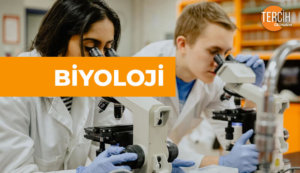The department of food engineering is one of the most striking and interesting undergraduate types of recent years. This type of license, which provides education with the mission of delivering healthy food to humanity, was formerly known as the Higher Agricultural Institute in Turkey. The department, which took its current name in 1993 with the recommendation of YÖK, has been continuing to provide training on various researches on food since those years. We have searched for you this part of the most curious part of recent years. You can find answers to many questions such as “What is food engineering?” “What do graduates do?” in this article. Happy reading!
What is the Department of Food Engineering?

The food engineering department is a department where interdisciplinary studies are carried out by working with fields such as physics, chemistry and microbiology. The aim is to ensure that the individuals who study the department have knowledge on the road to healthy food and are trained in this direction. In this context, food engineers are people who play an active role in the production, packaging and distribution of all kinds of food under appropriate conditions.
The department, which took its current name for the first time in Turkey in 1993, has managed to become one of the licenses that are getting popular day by day. Today, it continues to provide quality education and to train competent food engineers in Turkey’s most competent universities.
How Many Years is the Education Period of the Department of Food Engineering?
The education period of the department is 4 years. In some universities, this period can be increased to 5 years, since the language of instruction is English. However, students with good language skills can skip the preparatory part with the language aptitude test offered by universities. In addition, the department only accepts individuals who prefer the numerical field.
What are the Food Engineering Department Courses?
The courses offered during the 4-year undergraduate education of the department, whose general mission is the access of humanity to healthy food, are also in line with this mission. Accordingly, the basic courses that the graduates of the department will take in the faculty are as follows;
● General Chemistry
● Presentation Techniques
● Introduction to Food Engineering
● Calculus,
● Physics,
● Fundamentals of Biological Sciences,
● Introduction to Computing
● Introduction to Microbiology
● Fundamentals of Scientific Research
● Sustainable Food Systems
● Food Chemistry
● Food Microbiology
● Food Process Engineering
● Food Safety and Risk Assessment
● Food Analysis Laboratory
● Food Formulation Engineering
● Nutrition and Health
● Food Technology
● Quality Control in the Food Industry
● Shelf Life of Food Reactions
● Food Quality Control Systems
● Food Innovation and Design
● Digital Innovation in Food System
● Presentation Techniques
● Introduction to Food Engineering
● Calculus,
● Physics,
● Fundamentals of Biological Sciences,
● Introduction to Computing
● Introduction to Microbiology
● Fundamentals of Scientific Research
● Sustainable Food Systems
● Food Chemistry
● Food Microbiology
● Food Process Engineering
● Food Safety and Risk Assessment
● Food Analysis Laboratory
● Food Formulation Engineering
● Nutrition and Health
● Food Technology
● Quality Control in the Food Industry
● Shelf Life of Food Reactions
● Food Quality Control Systems
● Food Innovation and Design
● Digital Innovation in Food System
In addition to these, many elective courses are offered to students. While students are also responsible for Revolution and Turkish Language courses; Internships are also required.
What Do Food Engineering Graduates Do?
The aim of the food engineering department is to deliver food produced in a healthy and sterile environment to humanity. In line with this goal, we can say that the graduates of the department play a major role in the production of qualified food. However, not only in production, graduates also closely follow the process from production to packaging and delivery in food factories and prepare relevant reports.
How Much Salary Do Food Engineering Graduates Get?
Salary of department graduates varies according to the place of work. Therefore, it is not possible to talk about an exact fee. On the other hand, according to the statement made by the Chamber of Food Engineers of TMMOB, the minimum minimum wage for the professionals to be employed in 2021 has been determined as 6250 TL net. For the occupational groups not included in the relevant member, the minimum amount has been determined as 5750 TL gross and the net income is equivalent to 4100 TL.
What are the Challenges of the Food Engineering Department?
We mentioned above that the department accepts students in the digital field. For this reason, let’s not go without saying that the courses in the department will be digital-based. In this context, if you are also interested in mathematics, physics, chemistry and biology, you can easily read the section.
Who Can Succeed in the Department of Food Engineering?
We can say that all students with numerical intelligence can be successful in this department. In addition, it will be extremely enjoyable to read the chapter for individuals with reporting, analytical problem solving, independent working ability and advanced organizational skills.
What are the Job Opportunities of the Food Engineering Department?
Individuals who graduate from the department can work in the public or private sector. They can also find employment opportunities in universities as academicians. KPSS is a prerequisite to be able to work in the public sector. For this, individuals must take the exam from group B and get a score above 80. In the private sector, individuals; They can work in different facilities such as Restaurants, Food Factories, Catering Companies, Laboratories. Individuals who want to become an academic are required to have a master’s degree.
What are the Foreign Opportunities of the Food Engineering Department?
First of all, we should point out that there is no department called “food engineering” abroad. Instead, there are departments such as Food Science, Food Science and Nutrition, Food Biotechnology and Food Quality and Innovation. Those who are considering a master’s degree can study by examining the application requirements of the relevant universities in Europe and America. For those who want to work as engineers abroad, the accreditation system of universities comes into play. If the graduated university has accreditation to work abroad, the person can consider it. In any case, it should not be forgotten that the foreign language should be good.
In Which Fields Can Food Engineering Graduates Specialize?
Graduates who have completed their 4-year undergraduate education can work in food supply chains in the public or private sector with the title of food engineer. However, if individuals wish, they can specialize in fields such as academics, food scientists and graduate food engineers with their graduate and foreign education.
What is the Future of the Food Engineering Department?
It is one of the undergraduate programs whose importance has become more apparent in recent years. Moreover, food intake is extremely important for the survival of humanity. In today’s conditions, while the tendency towards ready-made packaged foods has increased so much, the production of healthy foods for humanity has gained the same importance. So there will always be a need for food engineers for the production of healthy and sterile food.
All other university departments from here you can reach.















